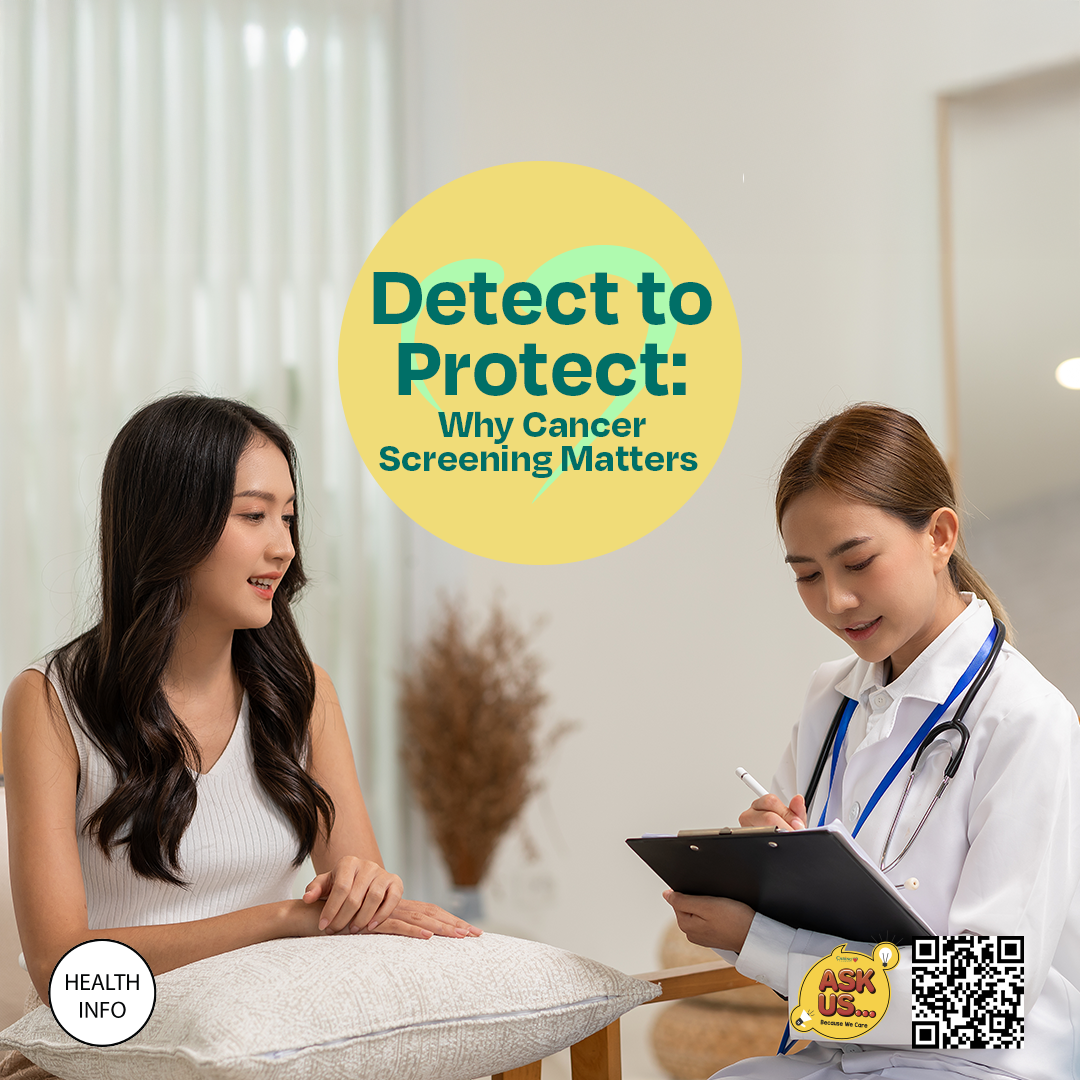- Home
- Health Center
- Health Info
- Detect to Protect: Why Cancer Screening Matters
Cancer
Detect to Protect: Why Cancer Screening Matters


Cancer is a complex group of diseases characterised by the uncontrolled growth and spread of abnormal cells in the body. It can arise in nearly any tissue and may affect various organs, leading to a wide range of symptoms and outcomes. Here’s an overview of key aspects of cancer:
Types of Cancer
- Carcinomas: These arise from epithelial cells and are the most common type of cancer, including breast, lung, and prostate cancers.
- Sarcomas: These originate from connective tissues like bone, muscle, and fat.
- Leukemias: Cancers of the blood and bone marrow that result in the overproduction of abnormal blood cells.
- Lymphomas: Cancers that affect the lymphatic system, which is part of the immune system.
Causes
Cancer can result from a combination of genetic, environmental, and lifestyle factors, including:
- Genetics: Inherited mutations can increase the risk of certain cancers.
- Environmental Exposures: Factors like radiation, chemicals, and viruses can contribute to cancer development.
- Lifestyle Choices: Smoking, poor diet, physical inactivity, and excessive alcohol consumption are significant risk factors.
Symptoms
Cancer symptoms can vary widely depending on the type and stage, but common signs include:
- Unexplained weight loss
- Fatigue
- Pain
- Changes in skin
- Persistent cough or hoarseness
- Changes in bowel or bladder habit
The five most common cancers worldwide, based on incidence, are:
- Breast Cancer: The most prevalent cancer, affecting both men and women, but predominantly women. Risk factors include genetics, age, and lifestyle.
- Lung Cancer: A leading cause of cancer-related deaths, primarily associated with smoking and environmental pollutants. It can be non-small cell or small cell lung cancer.
- Colorectal Cancer: This includes cancers of the colon and rectum. Risk factors include diet, age, family history, and certain genetic conditions.
- Prostate Cancer: Common among men, especially those over 50. Risk factors include age, family history, and race.
- Cervical Cancer: A type of cancer that occurs in the cervix, the lower part of the uterus that connects to the vagina. It primarily develops due to persistent infection with certain types of human papillomavirus (HPV).
Early diagnosis of cancer focuses on detecting symptomatic patients as early as possible so they have the best chance for successful treatment. When cancer care is delayed or inaccessible there is a lower chance of survival, greater problems associated with treatment and higher costs of care.
Many cancers have significantly higher survival rates when diagnosed at an early stage. For instance, early detection of breast or cervical cancer can lead to more effective interventions and better long-term prognosis.
In summary, early cancer detection significantly enhances the likelihood of successful treatment, improves survival rates, and leads to better quality of life for patients. Regular screenings and awareness of symptoms are vital components of early detection efforts.
References:
- Clinical Practice Guideline Management of Breast Cancer 2019 (3rd Edition). Ministry of Health Malaysia.
- Clinical Practice Guideline Management of Cervical Cancer 2015 (2nd Edition). Ministry of Health Malaysia
- What is Cancer?. National Cancer Institute. [Online]. [Cited in October 2024]. Available from : https://www.cancer.gov/about-cancer/understanding/what-is-cancer#:~:text=Cancer%20is%20a%20disease%20caused,sections%20of%20DNA%20called%20genes
- Cancer – Screening and Early Detection World Health Organization. [Online]. [Cited in October 2024]. Available from : https://www.who.int/europe/news-room/fact-sheets/item/cancer-screening-and-early-detection-of-cancer
Latest Health Info
Simple Habits That Help Keep the Liver Healthy
The liver is an important organ that performs vital roles, such as aiding in food digestion and managing how nutrients ...
How Liver Health Can Shape Your Skin This Festive Season
As we enter festive periods like the Lunar New Year, indulgence in rich foods, late nights, and extra social events ...
Brave the Cold: Winter Travel Needs
Winter travel has its kind of magic — snow-covered landscapes, cozy lodges, hot drinks, and festive markets. But traveling in ...



